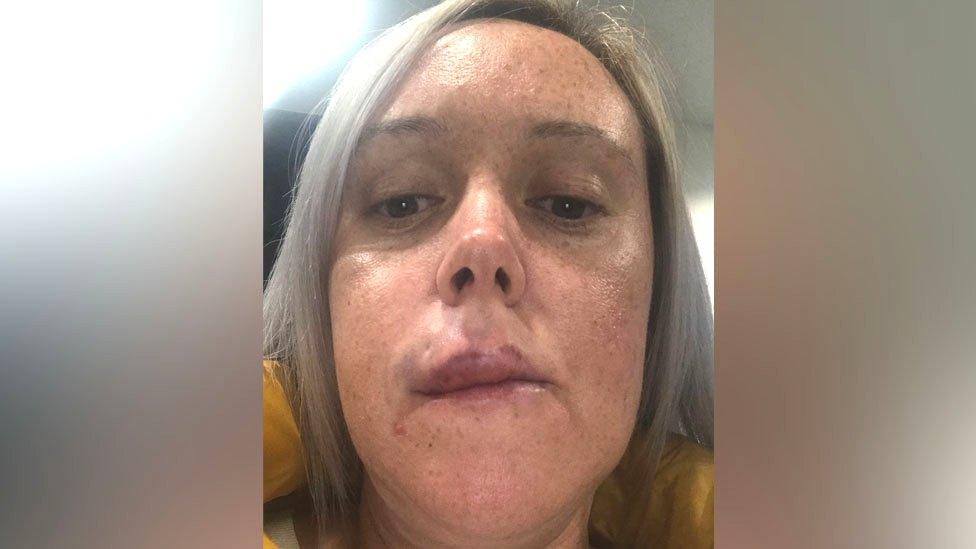Lockdown lip fillers gone wrong: 'My lips went black'
- Published
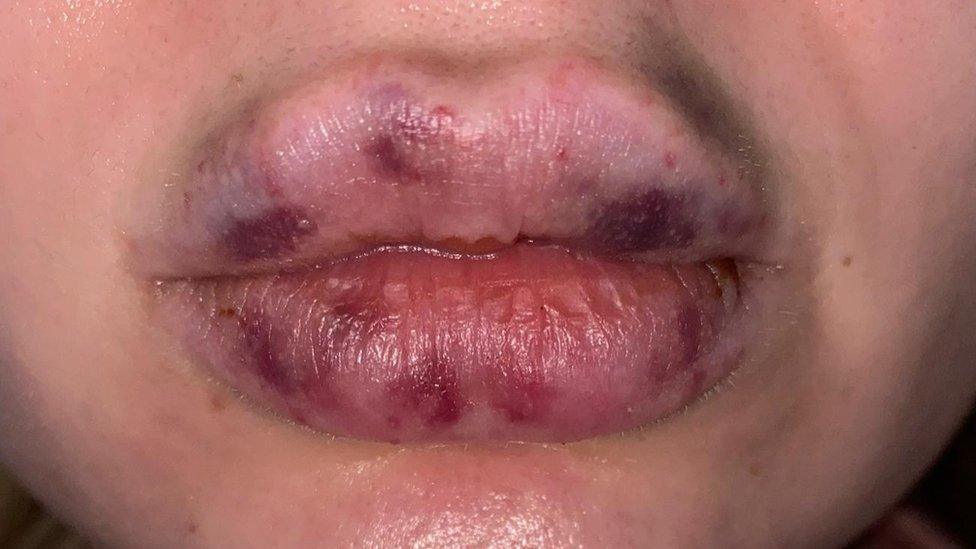
Angel, who found someone on Instagram to give her lip fillers in lockdown, says there was a lot of "pain and blood" during the procedure
Like lots of businesses across the UK, cosmetic clinics reopened their doors last week - offering treatments such as dermal fillers and botox.
But many people, impatient to obtain their dream look, opted to have procedures during lockdown so they could more easily recover at home.
The UK's register of accredited practitioners says it's led to a rise in patients requiring corrective work now clinics have reopened.
Angel is one of those patients.
A lot of 'pain and blood'
The 22-year-old, whose name we've changed, told Radio 1 Newsbeat she decided to get lip fillers from someone who had "a good presence on Instagram" and was recommended by a friend.
But as soon as she arrived at the person's house, she felt something wasn't right.
The procedure was painful and Angel felt blood "dripping down my face".
"Obviously by that point it's too late to turn back, when someone has a needle in your lips," she said.
Within two days Angel's lips "were black", so she contacted the person who'd carried out the procedure to ask what to do.
But they panicked when they heard what had happened - and had no advice to offer Angel.
Essex Sanctuary, a registered clinic, has dissolved the filler for her since lockdown eased.
'Unaccountable'
After doing some research, Angel found the person injecting her filler had no medical background.
That's completely legal, as in the UK inserting fillers requires no medical training.
But Save Face, the UK's register of accredited practitioners, says that means those without health qualifications are "unaccountable" and therefore "can't be struck off" by a statutory regulator.
Unlike a doctor, dentist or nurse, an unregulated practitioner won't lose their license if things go wrong.
Ashton Collins from Save Face says this means they "will take risks".
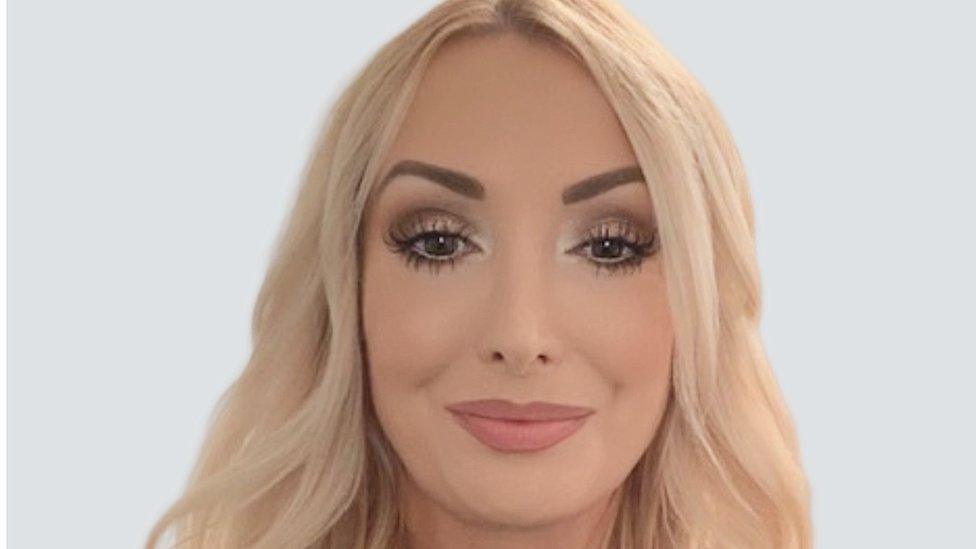
Ashton says Save Face’s web traffic increased 60% during the first lockdown
Throughout the UK's Covid lockdowns some clinics have been allowed to do filler for medical purposes such as treating acne and scarring - but that doesn't cover lip fillers.
The rise in fillers going wrong has meant qualified practitioners like dentist Dr MJ Rowland-Warmann are busy patching people up.
Although her cosmetic clinic was closed during lockdown, her dental practice in Liverpool remained open, at times assisting those who'd had filler gone wrong.
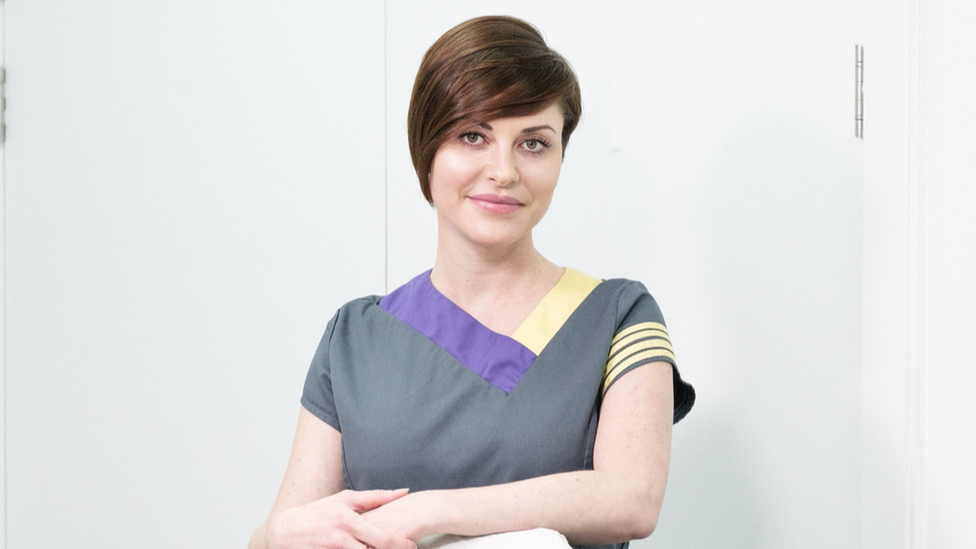
MJ says her clients want "voluptuous lips"
Pre-pandemic, MJ saw one or two of these patients each week, but during lockdown that increased to two to three cases every day.
She tells Radio 1 Newsbeat she's noticed a "staggering upward trend" in patients needing dissolved fillers.
Steph (not her real name) is one of the patients MJ helped. She's in her 30s and, like Angel, went to someone her friends recommended rather than waiting for qualified practitioners to reopen their clinics.
"I knew straight away something wasn't right, but I waited a few weeks before I went back to her and said, 'these are disgusting', but she said it was fine. It was horrific," she says.
Three weeks on from the procedure, Steph had developed a "roll of blisters" underneath her lip and says "the filler was moving to my nose" - that's when she contacted MJ.
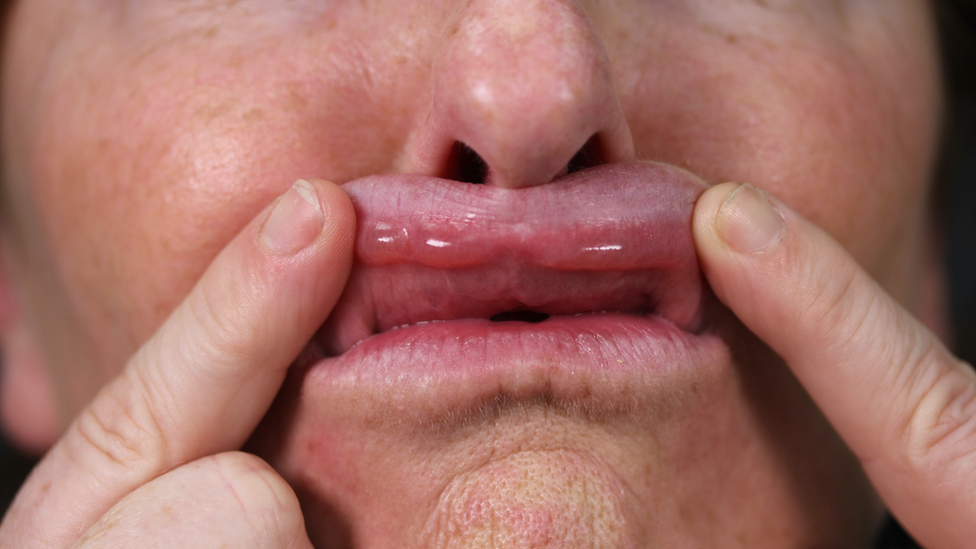
Steph was told she was at risk of losing her lips after her lip filler went wrong
MJ says the filler was injected in the wrong part of the lip causing the blockage of a blood vessel. If left untreated, Steph would have been in danger of losing her lips.
"Is it my own fault for going there? Probably, but these people are out there injecting," she says.
Ashton believes part of the problem is linked to treatments becoming "trivialised".
"Younger women don't view fillers as medical interventions that carry risks, they see them more akin to getting your nails or hair done," she says.
"Last year we had over 2,000 patient complaints and nearly 80% of those were from women aged 18 to 30 because they look to social media to find a practitioner."
This rings true with Chloe (not her real name), 27, who lives near Middlesbrough.
After spotting a "cheap offer" on Facebook, she booked in to get jaw filler.
But the treatment didn't go to plan and left Chloe with a "rounder face".
"When I saw photos from the side of my face, I noticed it looked even bigger. Now I've had it taken out everyone's like: 'You look like you've dropped a stone'," she says.
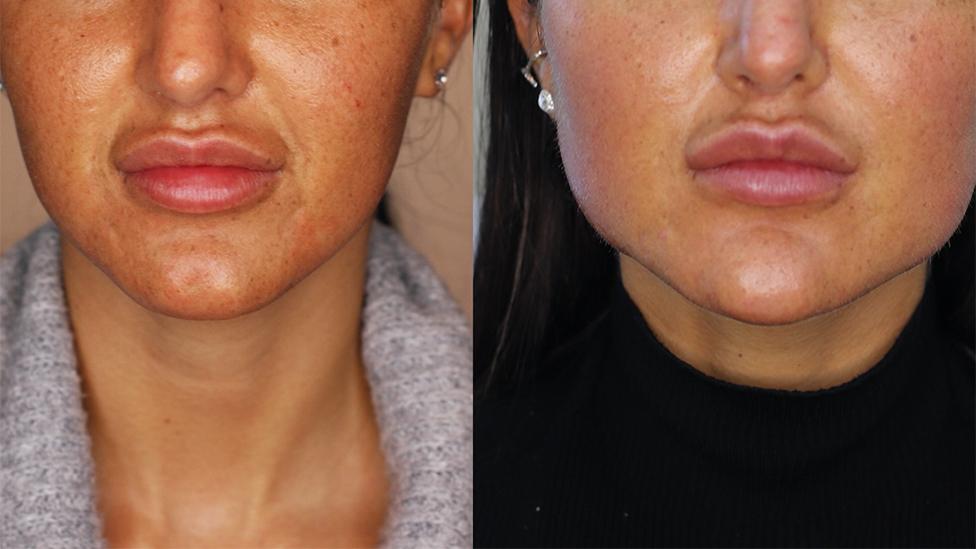
Chloe was unhappy with the result of her jaw filler procedure (right)
Chloe's message to people, herself included, is to "do more research".
Ashton says it's no coincidence that demand for treatments increased during lockdown.
"Anybody who finds themselves with time on their hands can spend time looking at social media pages advertising cosmetic treatments or watching reality TV. It's hard to find a reality TV programme now where contestants don't have some sort of cosmetic treatment."

Reality star Kylie Jenner has admitted to having lip fillers.
Ashton also thinks face-tweaking Instagram filters are "part of the motivation for younger people" to get lip fillers.
"We get a lot of stories from accredited practitioners saying patients present pictures and say 'I want to look like this filter'".


Follow Newsbeat on Instagram, external, Facebook, external, Twitter, external and YouTube, external.
Listen to Newsbeat live at 12:45 and 17:45 weekdays - or listen back here.
- Published20 January 2020
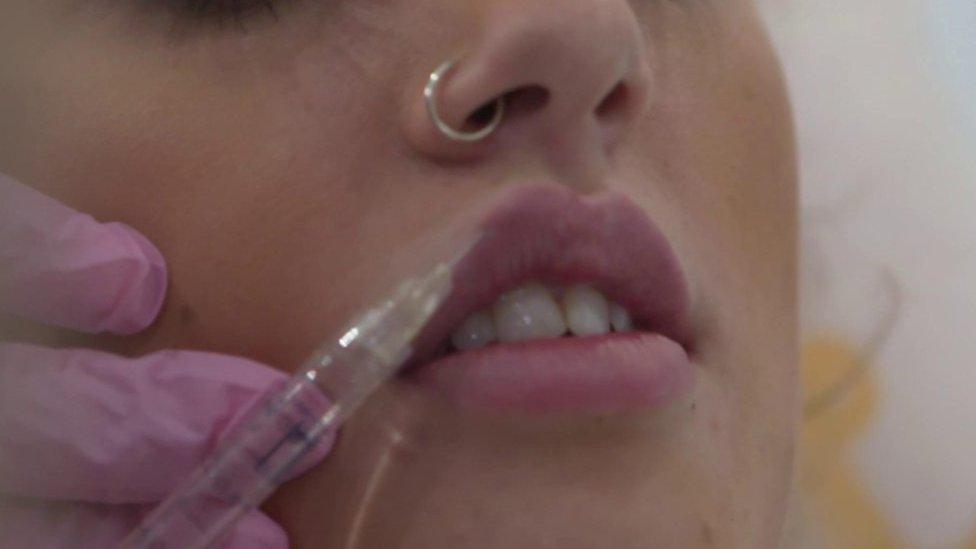
- Published17 January 2020
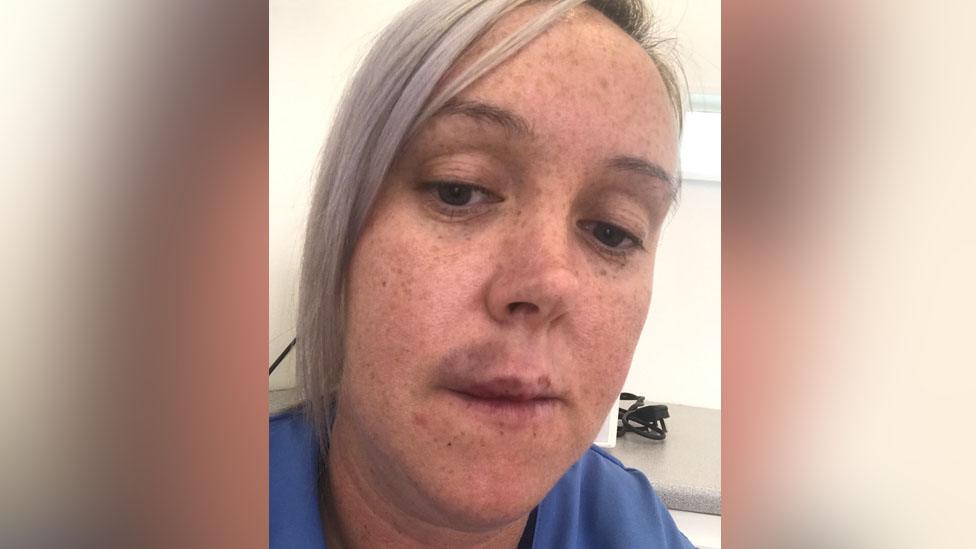
- Published18 December 2019
